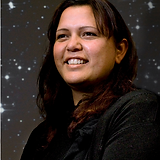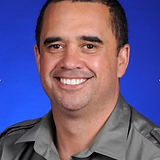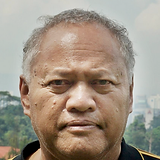top of page

Kia Ora From The Team!
In late 2000, a group called the Society of Māori Astronomy Research and Traditions (SMART) formed in 2009, this group was dedicated to the preservation and revitalisation of Māori astronomical knowledge. This group consists of Māori knowledge experts, educators, navigators and scientists. SMART has embarked on research and publications centered around Māori astronomical knowledge.
SMART consists of experts in Mātauranga Māori Tatai Arorangi, Astrophysics and Celestial navigation. All of these individuals are passionate about our Māori starlore, its preservation and revitalisation. They are also passionate about empowering and propelling our rangatahi into a positive future.
We aim to spark memories and passion in others, through accessible knowledge transfer (Culture, Art, Audio visual & Cyber space). Since our beginnings in 2009 with the International year of Astronomy, S.M.A.R.T. has sourced knowledge from astronomical educators, Mātauranga Māori experts and research astronomers to create a trust that has been established to regain the long-neglected knowledge of New Zealand Māori astronomy.
www.maoriastronomy.co.nz
Society Of Māori Astronomy
Research & Traditions
Ngā Takahuringa O Te Ao
The Effect of Climate Change on Traditional Māori Calendars
Climate change is fast becoming a reality for many indigenous peoples around the world. The peoples of the Pacific including Māori are now experiencing the negative impacts of climate change. For some, this is in the form of coastal erosion and higher sea level change to increased temperature and changes in flowering and fruit ripening times.
Scientists have traditionally engaged in various forms of rigorous efforts to understand climate change, utilizing techniques, such as computational modeling and ice core analysis. Indigenous knowledge is also being sought to offer a complementary set of data that can be used to inform on long-term climate patterns.
For Māori, this knowledge is captured within the traditional calendar system called the maramataka, which contains observations of the environment, ecology, weather and the celestial; used to help track seasonal and lunar times. Therefore, shifts in observation may indicate external factors affecting change to the system, with climate change being one possibility.
To this end, this project aims to collate and revive traditional Māori ecological knowledge relevant to traditional calendars using both qualitative and quantitative methods, such as semi-structured interviews, wānanga, phenological observations and mining published and unpublished materials, in order to assess observed effects of climate change.
Our Research Team
Our research group is a collaboration between the Society for Māori astronomy research and traditions (SMART), Victoria University of Wellington, Waikato University along with fellow researchers from Hawai’i.
All members of the research team are Māori or Kānaka Maoli (Hawaiian) and all are passionate about the revitalisation of our traditions, beliefs and practices in relation to the maramataka.
bottom of page






